Podcast: Play in new window | Download (Duration: 3:15 — 3.0MB) | Embed
Subscribe: Apple Podcasts | Spotify | Amazon Music | Android | Pandora | iHeartRadio | JioSaavn | Podchaser | Gaana | Podcast Index | Email | TuneIn | Deezer | Anghami | RSS | More
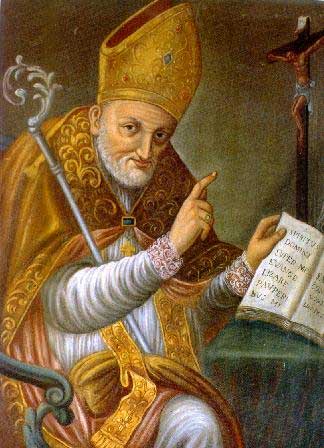
St. Alphonsus you have said:
If you wish to strengthen your confidence in God still more, often recall the loving way in which He has acted toward you, and how mercifully He has tried to bring you out of your sinful life, to break your attachment to the things of earth and draw you to His love. With such thoughts in your mind, now that you have resolved to love Him and please Him with all your strength, your only fear should be to fear God too much and to place too little confidence in Him.
GLORIOUS Saint Alphonsus, Bishop and Doctor of the Church, devoted servant of our Lord and loving child of Mary, I invoke you as a Saint in heaven. I give myself to your protection that you may always be my protector and my guide in the way of holiness and salvation. Aid me in observing the duties of my state of life. Obtain for me great purity of heart and a fervent love of the interior life after your own example.
Great lover of the Blessed Sacrament and the Passion of Jesus Christ, teach me to love Holy Mass and Holy Communion as the source of grace and holiness. Give me a tender devotion to the Passion of my Redeemer.
Promoter of the truth of Christ in your preaching and writing, give me a greater knowledge and appreciation of the Divine truths.
Gentle father of the poor and sinners, help me to imitate your charity toward others in word and deed.
Consoler of the suffering, help me to bear my daily cross patiently in imita tion of your own patience in your long and painful illness and to resign myself to the Will of God.
Good Shepherd of the flock of Christ, obtain for me the grace of being a true child of Holy Mother Church.
Saint Alphonsus, I humbly implore your powerful intercession for obtaining from the Heart of Jesus all the graces necessary for my spiritual and temporal welfare. I recommend to you in particular this favor: (Mention your request).
I have great confidence in your prayers. I earnestly trust that if it is God’s holy Will, my petition will be granted through your intercession for me at the throne of God.
Saint Alphonsus, pray for me and for those I love. I beg of you, by your love for Jesus and Mary, do not abandon us in our needs. May we experience the peace and joy of your holy death. Amen.
Prayer
HEAVENLY Father, You continually build up Your Church by the lives of Your Saints. Give us grace to follow Saint Alphonsus in his loving concern for the salvation of people and so come to share his reward in heaven. Walking in the footsteps of this devoted servant of Yours, may we be consumed with zeal for souls and attain the reward he enjoys in Your Kingdom. We ask this through Christ our Lord.
Amen.
For the entire 9 Day Novena please visit here: The Alphonsus Liguori 9 Day Novena

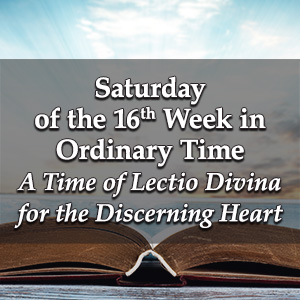 Saturday of the Sixteenth Week in Ordinary Time – A Time of Lectio Divina for the Discerning Heart Podcast
Saturday of the Sixteenth Week in Ordinary Time – A Time of Lectio Divina for the Discerning Heart Podcast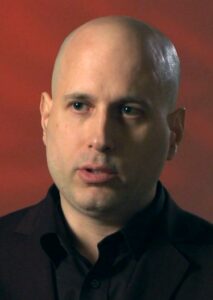

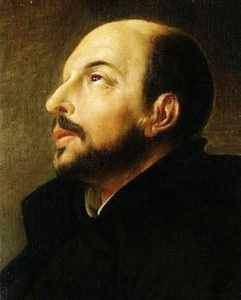 From the writings of St. Ignatius of Loyola:
From the writings of St. Ignatius of Loyola: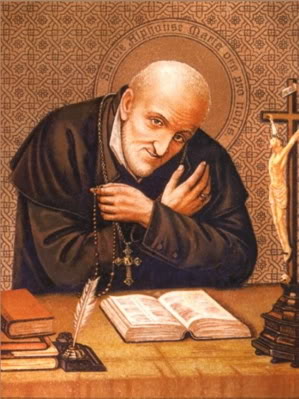
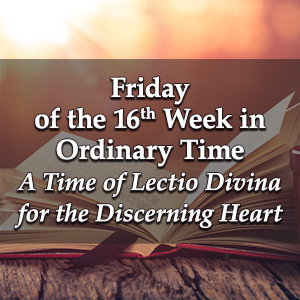 Friday of the Sixteenth Week in Ordinary Time – A Time of Lectio Divina for the Discerning Heart Podcast
Friday of the Sixteenth Week in Ordinary Time – A Time of Lectio Divina for the Discerning Heart Podcast

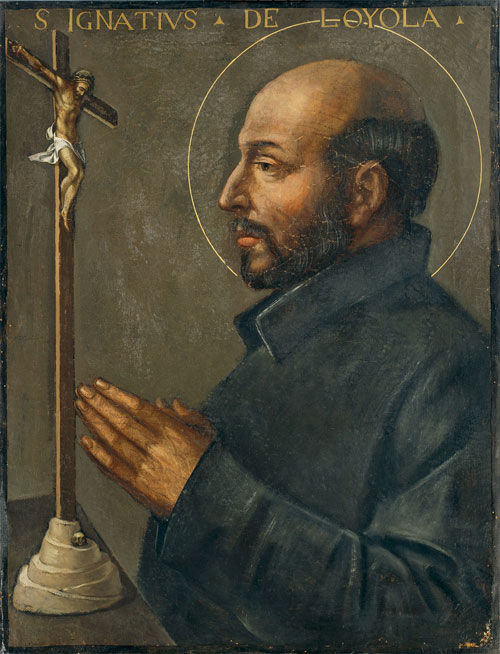
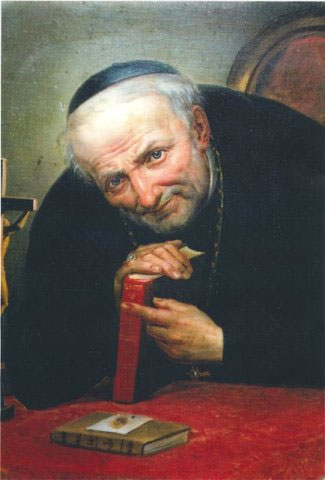
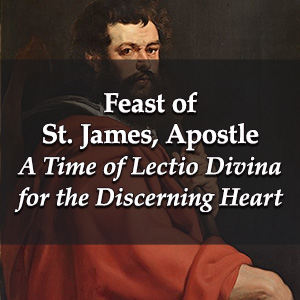 The Feast of St. James, Apostle – A Time of Lectio Divina for the Discerning Heart Podcast
The Feast of St. James, Apostle – A Time of Lectio Divina for the Discerning Heart Podcast